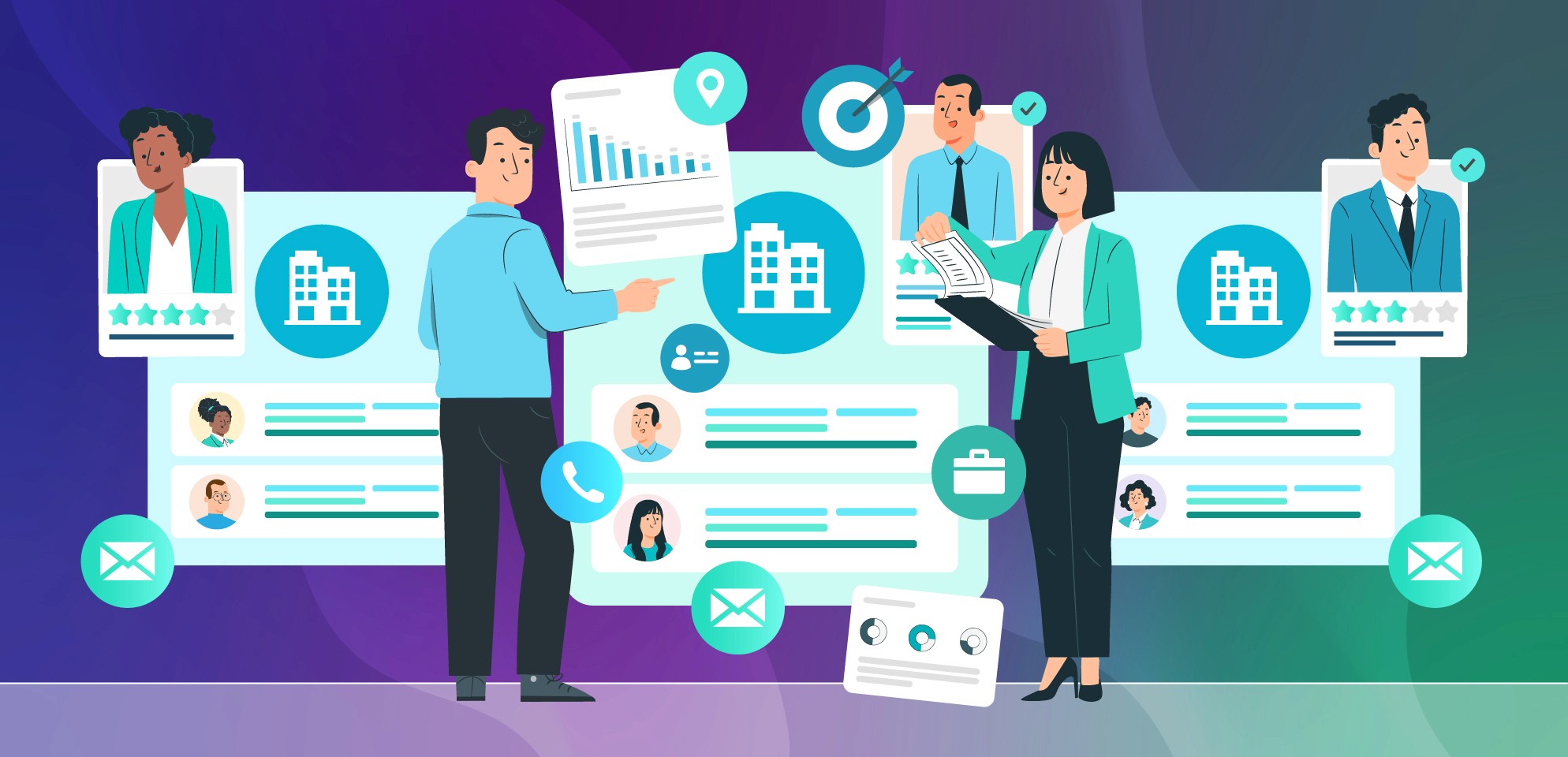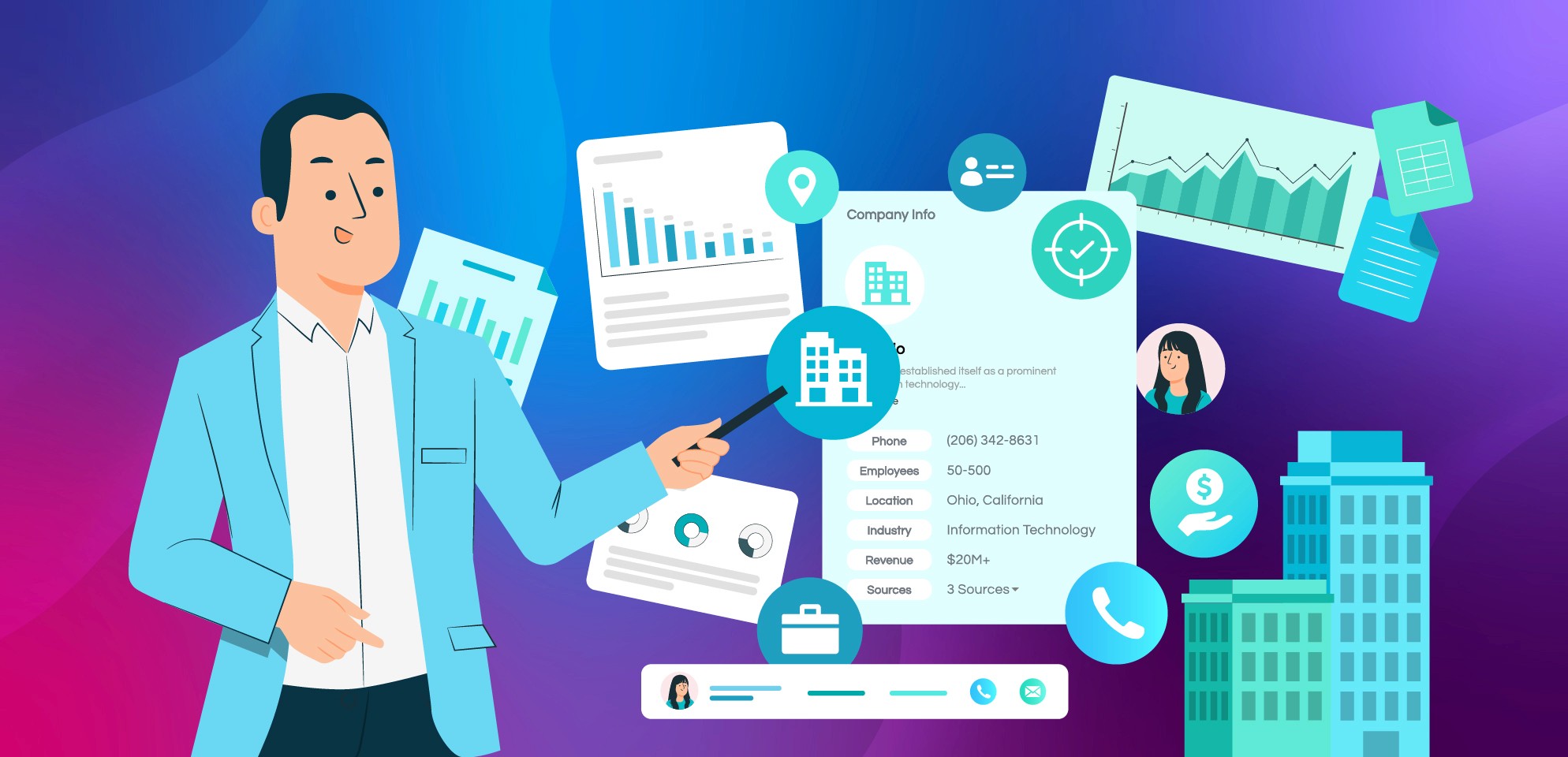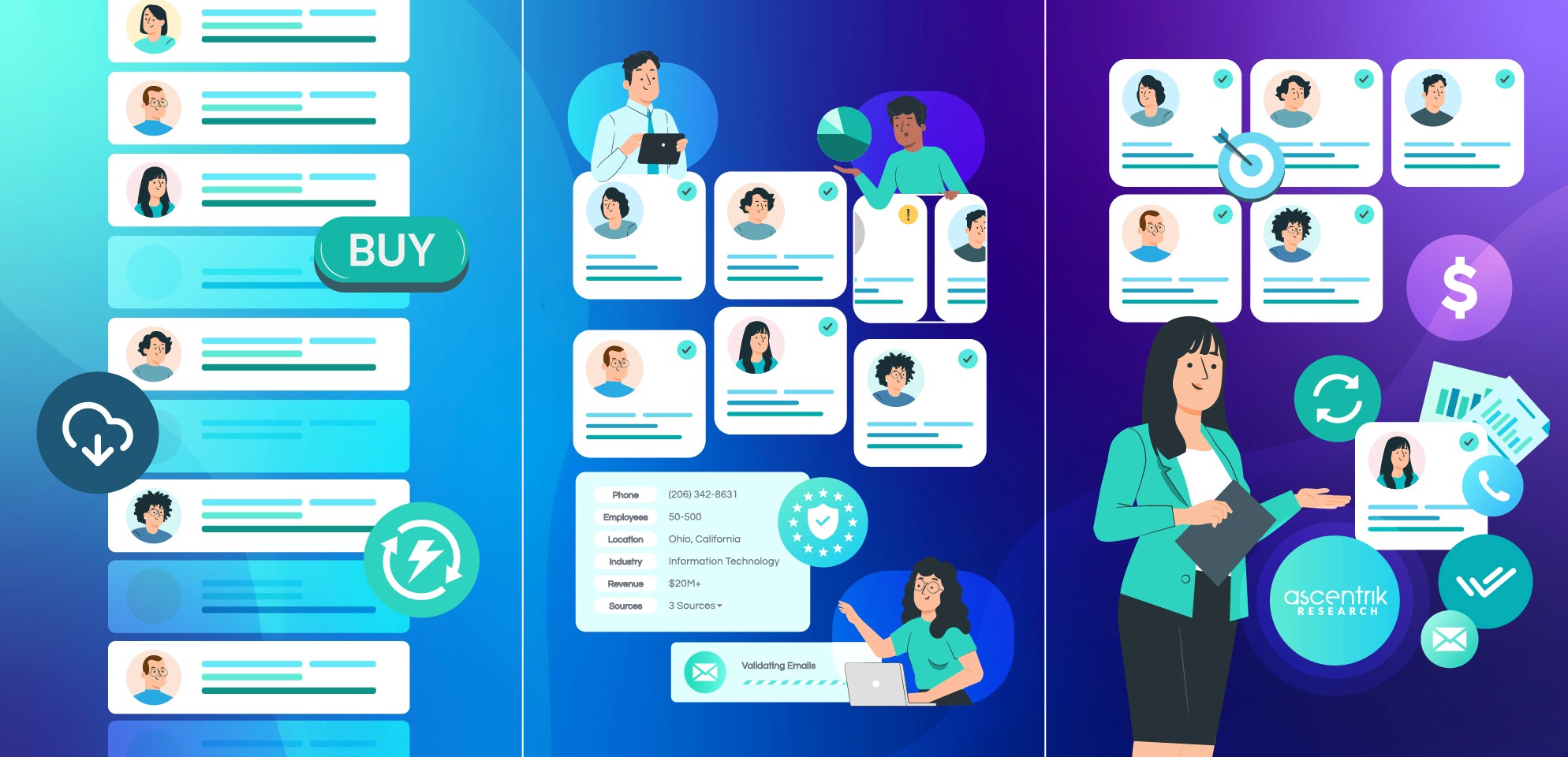Buy Email Lists By Industry for Specialised Outreach Campaigns
Published on: 13 Jun 2025
Last updated: 13 Jun 2025
Listen to audio summary of this article
In the current b2b market of software automation and data scraping, downloading data is very quick and easy for a marketer seeking to buy email lists by industry. Many data providers offer pre-built, downloadable databases covering broad industries and well-known job titles. These can be a quick starting point for businesses targeting large, well-defined markets.
Sectors like the ones listed below are commonly sought after and data is easy to source.
Technology: Software, SaaS, IT Services, Hardware, AI, IoT
Healthcare: Hospitals, Pharmaceuticals, Medical Devices, Biotech, Healthcare IT
Manufacturing: Automotive, Aerospace, Industrial Goods, Consumer Goods, Electronics
Financial Services: Banking, Insurance, FinTech, Wealth Management, Investment
Retail & E-commerce
Professional Services: Consulting, Legal, Accounting, Marketing Agencies
Education & EdTech
For a marketer focused on, say, selling CRM software to general IT managers or a sales professional aiming to connect with HR directors in manufacturing, these readily available lists might seem like a convenient solution. They offer immediate access, and in some cases, integration with CRM systems. To buy email lists by industry in such sectors is as simple as subscribing to an online database and downloading contact information into your CRM.
However, the convenience often comes at the cost of precision and, more importantly, relevance.
The Niche Dilemma: When Generic Data Falls Short
Here's where the real challenge emerges. While common industry data is abundant, what happens when your business targets a highly specialized, even obscure, segment? What if your ideal customer isn't a "Marketing Manager" but a "Chief Sustainability Officer in the rare earth minerals sector"? Or perhaps you need to connect with "Quantum Computing Software Developers" rather than just general "Software Engineers"?
This is the pressing concern that many businesses face. When you need contact data for common industries and job titles, it's easy to find it in online databases and subscription platforms. But when you need to buy email lists by industry and moreover, a truly niche sector, it becomes an incredibly tough job. The data available is often outdated, inaccurate, or simply non-existent in mass-produced databases. This leads to wasted marketing spend, low conversion rates, and a significant drain on your sales team's valuable time.
Consider some of these Niche and Highly Specialised Sectors:
AI Solutions for Rare Disease Diagnosis
Quantum Computing Software Developers
Specialized Drone Services for Industrial Inspection
Next-Generation Battery Technology Companies
Uncommon or Niche Job Roles:
Director of AI Ethics
Quantum Machine Learning Engineer
Genetic Data Privacy Officer
Chief Sustainability Officer (in specific manufacturing sub-sectors)
Head of Remote Work Experience
Robotics Process Automation (RPA) Leads
Blockchain Solutions Architect
Director of Digital Transformation (within specific traditional industries)
Attempting to buy email lists by industry for these highly specific requirements from generic sources is akin to finding a needle in a haystack – an expensive, time-consuming, and often fruitless endeavor. The data decay rate in B2B is notoriously high, and a pre-built list, by its very nature, starts decaying the moment it's compiled.
Is it possible to Buy Email Lists by Industry? How does it work?
Yes, it is possible to buy highly targeted and granular email lists by industry. This approach allows businesses to connect with professionals in specific sectors, enhancing the relevance and effectiveness of their marketing campaigns. Here's how it works:
Benefits of Industry-Specific Email Lists
Relevance: By going for specific industries, you ensure that your messages reach individuals who are more likely to be interested in your products or services.
Efficiency: Buying industry-specific lists help reduce wasted resources by focusing on leads that are more likely to convert.
Personalization: Tailoring content to specific industries allows for more personalized and relevant messaging, which can improve engagement and conversion rates.
How to Buy Email Lists by Industry?
The The first step in buying email lists by industry is Clearly Define Your Ideal Customer Profile (ICP):
Beyond Industry: What specific sub-sectors within that industry are you targeting? What is the company size, revenue, geographic location, or even technologies used by your ideal customers?
Identify Key Decision-Makers/Buyer Personas: Who are the specific job titles or roles you need to reach within those companies? Go beyond generic titles like "Manager" to pinpoint "Head of AI Ethics," "Director of Sustainable Packaging," or "Chief Metaverse Officer" if your solution is highly specialized.
Understand Pain Points and Needs: What challenges do these specific contacts face that your product or service can solve? This understanding is crucial for crafting relevant messaging later.
Then Determine Your Data Requirements:
Data Fields Needed: Beyond email addresses, what other contact information is vital (e.g., phone numbers, LinkedIn profiles, company size, revenue, specific technologies used, direct dials)?
Data Freshness: How critical is it for the data to be absolutely current? For fast-moving industries or very niche roles, data decay can be rapid.
Volume: How many contacts do you need? This will influence pricing and the type of provider you choose.
Prioritize Data Quality Over Quantity:
Accuracy: A smaller list of highly accurate and verified contacts will always outperform a massive list riddled with outdated, bounced, or irrelevant emails. High bounce rates damage your sender reputation and can lead to your emails being flagged as spam.
Deliverability: Look for providers who guarantee a high deliverability rate (e.g., 90% or more). This indicates valid email addresses.
Relevance: The contacts should genuinely match your ICP and buyer personas. Irrelevant contacts are a waste of resources.
Understand Data Sourcing and Compliance:
Sourcing Methodology: Ask the provider how they acquire their data. Are they just scraping public websites (which can lead to low quality and compliance issues) or using a more robust, human-verified approach?
Legal Compliance: This is paramount. Ensure the provider adheres to relevant data privacy regulations like GDPR (Europe), CCPA (California), and CAN-SPAM (US). Opt-in data is always preferred to avoid legal issues and maintain a positive sender reputation.
Request Samples and Test Data:
Never purchase a large list without testing a sample first.
Verify a percentage of the sample contacts manually (e.g., via LinkedIn, company websites) to assess accuracy and relevance.
Run a small email campaign to the sample to check deliverability and initial engagement.
Assess Support and Guarantees:
Does the provider offer ongoing support?
Do they offer a data replacement guarantee for contacts that become invalid or change roles within a certain timeframe? This shows confidence in their data quality.
Begin evaluating data partners:
When a B2B company wants to buy email lists by industry, they generally have a few primary options, each with its own advantages and disadvantages. There are several providers from whom you can buy email lists by industry:
Mass-Market Data Providers (Subscription-Based Platforms):
Examples: ZoomInfo, Apollo.io, UpLead, Lusha, Cognism, Saleshandy.
Pros: Large databases, extensive filtering options (by industry, job title, company size, revenue, technographics), instant access, often integrated with CRMs. Good for targeting common industries and broad roles. Many offer varying levels of data verification and compliance.
Cons: Data can become outdated quickly. While they have large databases, finding truly niche segments with high accuracy can still be a challenge. Less control over data sourcing. Data quality can vary significantly. Some rely heavily on automated scraping.
Best for: Companies targeting widely recognized industries and job functions, with a need for high volume and quick access.
Custom Data Research Companies (Like Ascentrik Research):
Examples: Specialized B2B data research agencies like Ascentrik Research.
Pros: Highly accurate and relevant data, custom-built for specific client needs, excels in finding niche industries and obscure job roles, often involves human verification processes, better compliance assurance (especially with opt-in data if requested), data replacement guarantees.
Cons: Can be more expensive per lead than mass-market providers due to the intensive manual research involved. Turnaround time may be longer than instant downloads.
Best for: Businesses targeting highly specific, niche markets or unconventional job titles, those requiring unparalleled data quality and precision, and companies for whom a high ROI from fewer, more targeted leads is paramount.
Lead Generation Agencies (Often Offer Lists as Part of a Service):
Examples: Various B2B lead gen agencies.
Pros: They often have their own proprietary databases or partner with data providers. They can handle the entire outreach process (email marketing, cold calling).
Cons: Less transparency on data sourcing and quality if it's bundled. You might be paying for a service rather than directly owning the data.
Best for: Companies looking for an end-to-end solution for lead generation, where data acquisition is just one component.
Niche Data Aggregators/Brokers:
Examples: Smaller, specialized companies focusing on very specific industries (e.g., a provider specializing only in healthcare or legal industry data).
Pros: Deep expertise in their niche, potentially higher relevance for very specific industries.
Cons: Limited in scope if your needs expand beyond their niche. Data quality can still be inconsistent; proper vetting is essential.
Lastly, consider this checklist of critical questions for evaluating partners.
Here are key questions to ask any potential provider, and how Ascentrik stacks up:
What are your data sources?
Ascentrik: A multi-channel approach including premium directories, public records, proprietary research techniques, and always ethical sourcing. We believe in transparency for our contact list compilation.
How do you verify your data, and how often?
Ascentrik: Multi-step verification, including human validation. Update frequency is based on client needs for ongoing projects, so our data is always fresh.
Can you provide truly custom lists based on my specific ICP?
Ascentrik: This is our core differentiator. When you buy an email list by industry it is built to your exact specifications, not pulled from a generic pool.
What is your data accuracy guarantee?
Ascentrik: We pride ourselves on delivering the highest possible accuracy and deliverability rates for our lists, backed by our rigorous verification processes.
Are your lists compliant with GDPR, CCPA, etc.?
Ascentrik: Yes, compliance is paramount. We ensure all data for your list is sourced and provided in a compliant manner.
What level of detail can you provide beyond just email addresses?
Ascentrik: We can provide comprehensive profiles including phone numbers, job titles, company firmographics, and market intelligence, making your list a rich resource.
What kind of support do you offer?
Ascentrik: Dedicated account management and support to ensure your lists meet your expectations and help you achieve your goals.
When you scrutinize providers in order to buy email lists by industry, Ascentrik's commitment to customization, quality, and compliance becomes evident.
The Tangible ROI of Buying Email Lists by Industry
While a custom-built industry contact list might seem like a more significant upfront investment compared to a cheap, generic list, the long-term ROI tells a different story:
Higher Conversion Rates: Reaching the right people with the right message drastically improves conversion.
Reduced Wasted Resources: Less time and money spent on bounced emails, wrong numbers, and unqualified leads.
Improved Sender Reputation: Clean, accurate lists protect your email sender score.
Increased Sales Team Productivity: Salespeople can focus on selling, not prospecting dead ends.
Actionable Market Insights: A quality list can reveal valuable information about your target market.
Ultimately, when you buy email lists by industry from Ascentrik, it is an investment in efficiency, effectiveness, and sustainable growth.
In conclusion, when a B2B company decides to buy email lists by industry, the most critical step is to accurately define their ideal customer. For broad, common industry targets, subscription platforms can offer a quick solution. However, for truly niche or hard-to-find segments, investing in a custom data research company like Ascentrik Research, which prioritizes accuracy, human verification, and bespoke list building, becomes the most effective and ultimately profitable strategy. The aim should always be to acquire data that fuels meaningful conversations and converts into real business growth.
Table of Content



